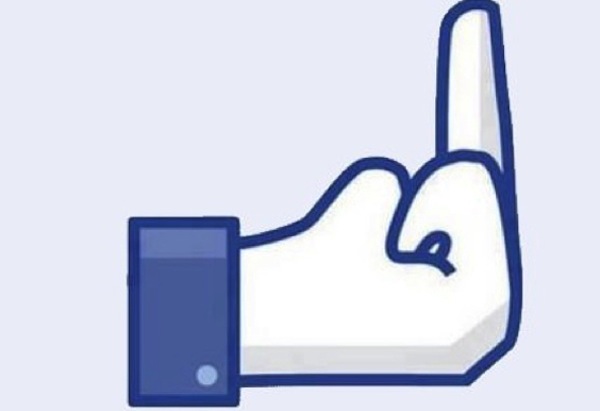We may be the last generation with a powerful tool like the internet, yet still possess the ability to focus the mind long enough for deep work.
Today’s technology entrepreneurs believe we’re living in an “attention economy,” and you can bet they’re vying for our attention right now. If we continually succumb to the fleeting whims of distraction technology creates, our life’s most precious non-renewable resources, time and attention, will be robbed from us—our achievements forever bound for mediocrity.
Imagine what could be accomplished in this life should we make a concerted effort to actualize the immense power of the brain latent within us all.
Strength of Mind
Effectively managing your attention is a superpower in modern times; therefore, the ability to focus the mind and concentrate on a single task until it is beaten into submission will separate you.
In The Talent Code by Daniel Coyle, the author explains there is a tissue in the brain called myelin that helps us develop talents and skills. The tissue works similar to a muscle in that it’s dependent on “exercise” for growth. You can develop myelin tissue through long periods of deep focus and deliberate practice. Myelin’s expansion and growth leads to more knowledge, a deeper understanding and acquisition of skills.
In the same way going to the gym builds muscles, so the progression through tedium and challenge in the early stages of learning and skills acquisition will reward you with a strengthened mind.
Focus in the Workplace
Distractions at work are often self-imposed: instant messaging, checking social media or text messages. Not to mention email notifications or chats with colleagues using collaboration software.
Knowledge workers regularly deal with distractions in office settings. I once worked in an open floorplan concept where it seemed like the recess bell was wrung every 15 minutes.
In Cal Newport’s latest book, Deep Work: Rules for Focused Success in a Distracted World, he says, “Our work culture’s shift toward the shallow…is exposing a massive opportunity for the few who recognize the potential of resisting this trend and prioritizing depth…”
The true scarce commodity of the future will be human attention.” – Satya Nadella, Microsoft CEO
Advertisements and push notifications contend for our attention throughout the day. Smart people in Silicon Valley work long hours devising new ways to exploit our mental impulses. Their goals are achieved only when we spend inordinate amounts of time on their apps and websites.
Social Media Habits
Habit-forming technologies are being designed this minute—our behavior is often influenced without us realizing it. Our mindshare can be occupied by social media even after we close apps.
The ubiquity of smartphones means they must be managed—screen addiction is a real thing.
Consider the similarity between pulling the screen down to refresh an app’s newsfeed and the addictiveness of pulling the lever on a slot machine. Like a casino pit boss, shrewd app designers know you’ll stay longer if YOU are pulling the lever to refresh the screen instead of having it done for you.

Facebook’s most prominent attention-seeking feature is “birthday notifications.” Whether or not I wish someone “Happy Birthday” is dependent on the number of friends I have who share the same birthday.
When I do post “Happy Birthday” on a friend’s “wall,” he or she will invariably login to say “thank you.” The compulsion to express gratitude for my gesture was undoubtedly anticipated by the app’s designers—four eyeballs means more ad revenue.
Some apps’ features induce short-term dopamine boosts to which none of us are immune. The “like” button is perhaps the most seductive—anyone who says they don’t look to see who’s “liked” their post is going to lie about other stuff too. Avoid those people.
Have you ever wondered after closing an app what someone’s “like” means? Did you figure it out? You won’t get that time and attention back; thus, additional mindshare captured. Tip your cap to those clever coding bastards.
Wanna Chat?
Due to “technology creep,” idle moments when we may have discovered brilliant ideas (those rarely interrupt us) or made new friends are filled with ever-increasing distractions. Even the smallest of interactions with fellow humans have a tendency to elevate one’s mood, yet we’re glued to our screens instead.
Smartphones are the antidote to good conversation. Nobody will ask what you’re viewing on your screen—it’d be weird, if not invasive. Even if you are lucky to engage someone, there’s a high likelihood they’ll give their phone a mid-conversation glance (the proverbial digitus medius of our digital world)—avoid those people too.

It is hard to have meaningful conversation or connect with someone in a continuous state of partial attention. Combat lack of focus by periodically disentangling yourself from screens and devices—they’re hijacking your brain.
Preaching “Appstinence”
On average, Americans reach for their phones 80 times a day, or 29,000 times per year. The average Instagram user opens the app 35 times a day (be sure to “like” my latest post).
I check Instagram ~5 times in 24 hours, which means someone in the world is thumbing the purple yellow square 65 times to average us out.
We’ve known for years television has adverse affects on happiness. Studies have shown 15 minutes after watching mindless TV, people feel less happy—social media works the same. If using social media apps for entertainment instead of learning, personal happiness will suffer.
“Celebrities sans talent can be directly attributed to the quality of peoples’ attention, or lack thereof.” – Man Overseas
6 Hacks & Routines to Increase Productivity and Happiness:
- No phone use first hour of day – don’t want to start day in reactive mode
- Never allow push notifications on phone
- Check email no more than three times a day – four times if you’re trying to convey you’re always available (you’re not)
- Turn off text message notifications – check texts as you would email (if someone stops breathing, you’ll be called not texted)
- When doing deep work, set the timer on your phone and put phone where you can hear the timer but not vibrations – learn serial position effect so your time durations best exploit primacy/recency cognitive biases for optimal learning
- Use an old-school alarm clock. If you’re insistent on using a phone as an alarm clock, set the timer instead (I use the timer as much as any app on my phone) – you’ll exercise your brain one last time before bed and know exactly the amount of sleep you’re getting (I aim for 7 hrs & 15 mins). Put the phone where you must get up to turn it off. You’ll get the added benefits of no screen time before shut-eye and the timer will go off only once in the morning—no chance for snoozing.
“Routine, in an intelligent man, is a sign of ambition.” – W.H. Auden
If self-regulation isn’t your forte, you can start by using technology to prevent using technology:
- Use Freedom program to block internet, apps & websites
- Use Self-Control program to blacklist websites on a Mac
- Use Offtime for Android
- Use FocusMe website blocker for Windows, Mac & Android
“We must give up many things to which we are addicted, considering them to be good. Otherwise, courage will vanish, which should continually test itself. Greatness of soul will be lost, which can’t stand out unless it disdains as petty what the mob regards as most desirable.” – Seneca, Moral Letters, 74.12b-13
Pull Up to the Scene with Your Ceiling Missing (Be Different)
By rule, nobody lives an extraordinary life doing what everyone else does. We must continually fight against conforming to current social norms of perpetual distraction and reactivity. If our achievements are to rise above mediocrity, incorporating “appstinence” routines into daily life is a good start.
In a prior post, I write that all worthwhile achievements are the result of compounding. If true, then all lack of achievement can be attributed to the absence of discipline through seemingly harmless habits we unthinkingly repeat everyday.
The benefits of… there goes my timer! To be continued…




Brad– You hit a homerun on this blog–so true. I see this all day long with even my employees. Such waste of the human mind.
Keep it coming
Mitch
PS-I’m trying to make one of the WS games next weekend in Houston–we have season tickets–if I can make it, I’ll give you a shout.
Thank you, Mr. Mitch! Hope your employees read the blog too. Please let me know if you’ll be in Houston. Go Stros!